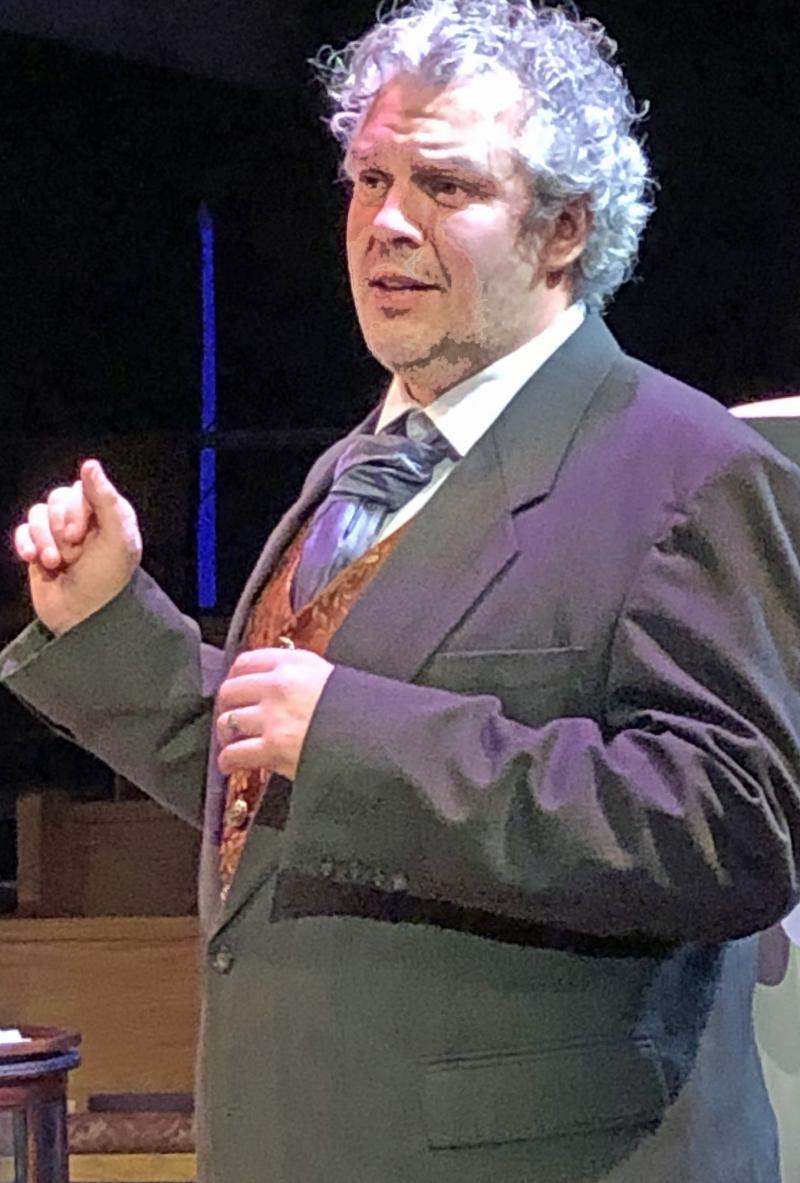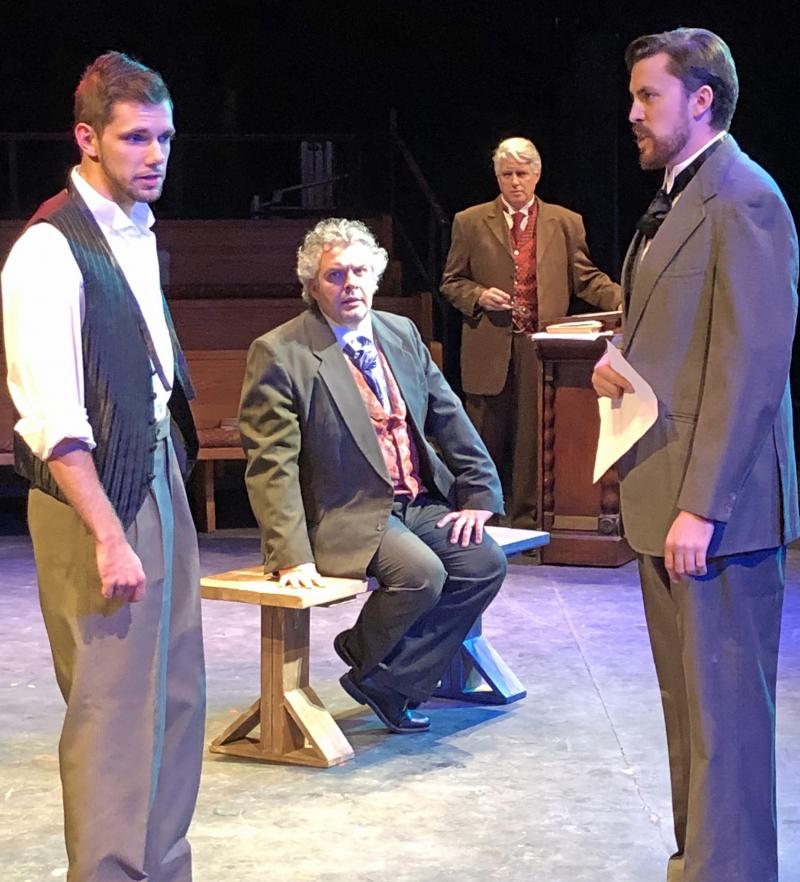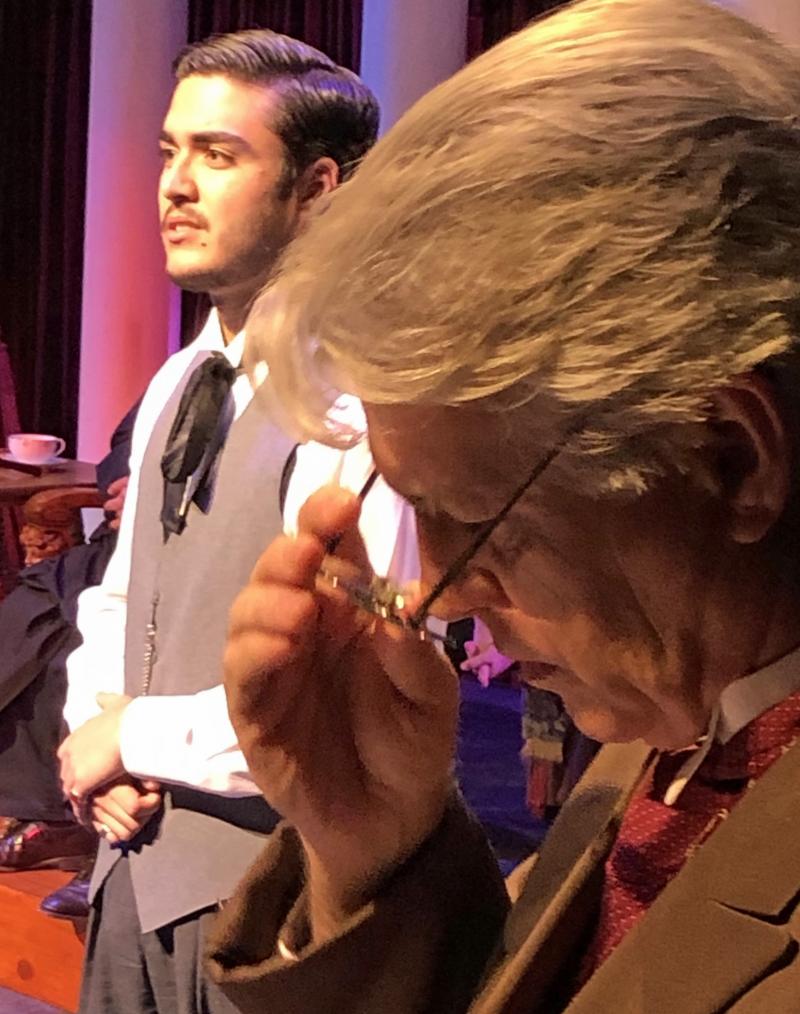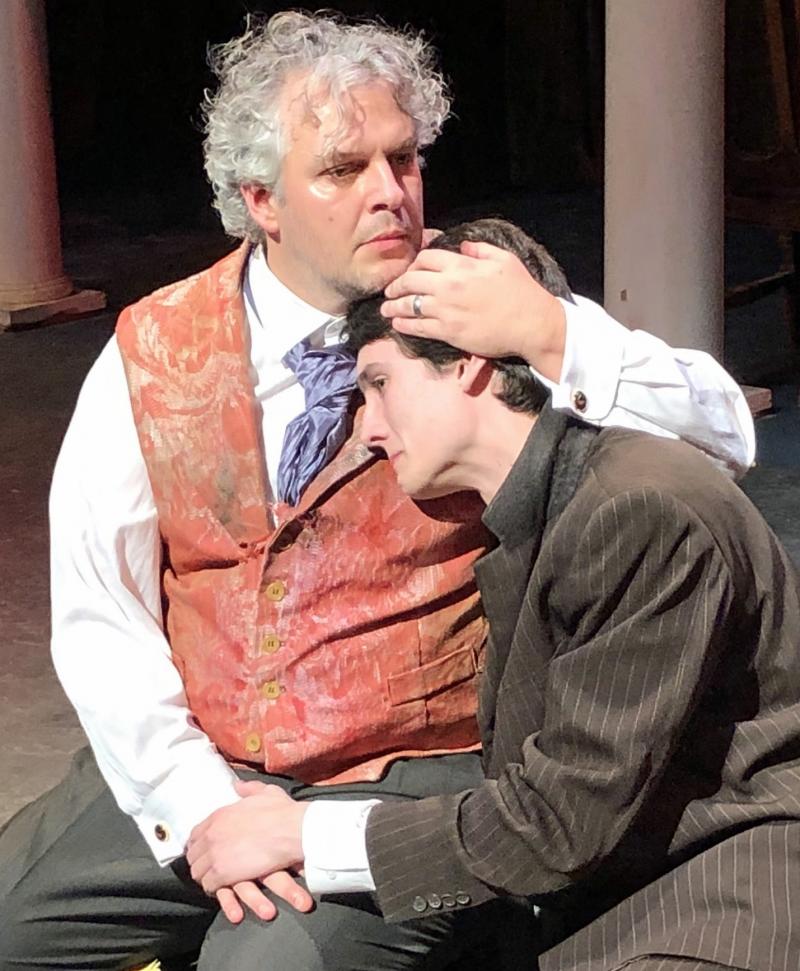Review: GROSS INDECENCY - THE THREE TRIALS OF OSCAR WILDE at Metropolitan Ensemble Theatre
"Gross Indecency; The Three Trials of Oscar Wilde" is a fascinating, well-acted, and well-directed construct of the playwright's final years seen through the lenses of Wilde himself, his lovers, his accusers, and his defenders. This production, mounted and directed in the intimate Metropolitan Ensemble Theatre, by MET Artistic Director Karen Paisley is worth your time for the quality of the performances and for its unusual take on the process of making art.
Oscar Wilde (brought to life here by Scott Cox) was one of the most successful Anglo-Irish playwrights, poets, and novelists of the late nineteenth century, Victorian period. He is a formally closeted, yet publically flamboyant individual whose life includes a wife, two sons, and a penchant for intimate friendships with very young, handsome men.

Most of this rarely performed, 1997, off-Broadway play by Moises Kaufman takes place in one of the Old Bailey Courtrooms that house the London criminal courts on the site of the medieval Newgate Gaol. One of the young men fancied by Oscar Wilde is Lord Alfred Douglas (Alec Bridges), the third son of the Marquis of Queensbury (Bob Paisley). In an attempt to break up the relationship between his son and Wilde, Queensbury accuses the playwright of being a sodomite. Wilde sues the nobleman for libelous damage to his reputation.
Relationships between men were frowned upon in Victorian Britain, but mostly tolerated with a wink and a nod especially in the nation's famous, single-sex, upper class, public schools. Earlier, men caught in congress had been sentenced to life in gaol or to transportation to the colonies, but formal criminal statutes were not codified by the Queen until 1885 and even then as a misdemeanor. One might wonder if this 1885 element of English law might not have been a softening of earlier practice.

Kaufman's play is cleverly constructed of excisions from historical records, transcripts of the court trials, snippets of Wilde's own writings, a late-in-life memoir by Lord Alfred Douglas, and other contemporary sources.
The "Three Trials" took place during a six week period in 1895. Wilde took great umbrage at being accused. Wilde's powerful attorney throughout was Sir Edward Clarke played by Michael Scahill. Clarke corners Wilde and demands to know the truth of the matter. Clarke is assured that Queensbury's accusations are groundless.
 During Trial One, it becomes obvious that Wilde is guilty of what he has been accused and that the civil complaint has no merit. On advice of counsel, Wilde withdraws his libel claim and is saddled with Queensbury's high court costs.
During Trial One, it becomes obvious that Wilde is guilty of what he has been accused and that the civil complaint has no merit. On advice of counsel, Wilde withdraws his libel claim and is saddled with Queensbury's high court costs.
Clarke encourages Wilde to flee to France where laws do not criminalize same sex relationships, but for unknown reasons Wilde refuses. He is soon arrested and hauled before the bar on a criminal complaint. Wilde is eventually convicted (after one hung jury) and serves two years at hard labor. His health is compromised and he dies in 1900.
"Gross Indecency" is staged as almost a tableau with cast members in what might be seen as a Greek chorus, before stepping up, and contributing elements to the whole. Director Karen Paisley has done a super job of level casting in this complex piece. There are no small actors, nor small parts. Each cast member is a gear driving the rotating whole. Bridges, Scahill, and Bob Paisley offer exceptionally strong individual characterizations.
 Scott Cox (in the title role) is supremely in control of his Oscar Wilde. Cox shares a difficult, informed, nuanced view of who he believes this literary genius may have been in life.
Scott Cox (in the title role) is supremely in control of his Oscar Wilde. Cox shares a difficult, informed, nuanced view of who he believes this literary genius may have been in life.
Despite the subject matter of the trial, I was surprised by how little Wilde's same-sex proclivities have to do with who Cox shows us he was. The show is an extraordinary exploration of Wilde's character from the several points of view and mostly first person source materials. The play addresses how Wilde regarded the society around him and the making of his art.
While Wilde was doubtless a great writer, he reveals himself as a supremely arrogant libertine, who embraces anarchy, and rejects moral and social constraints. Wilde thought he knew better than everyone else and could outsmart the system writ large. Therein lays the root of his eventual downfall and premature demise.
"Gross Indecency: The Three Trials of Oscar Wilde" continues at the MET's Warwick Theatre until March 29. Tickets can be purchased on the METKC website.
Photos courtesy of Karen Paisley.
Reader Reviews

Videos
